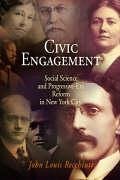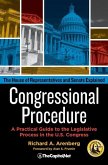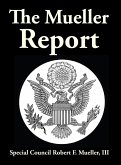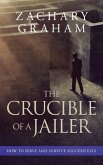- Gebundenes Buch
- Merkliste
- Auf die Merkliste
- Bewerten Bewerten
- Teilen
- Produkt teilen
- Produkterinnerung
- Produkterinnerung
Recchiuti chronicles the coalescence of overlapping social reform networks in New York City during the late Gilded Age and the Progressive Era built around the newly emergent social sciences. In this deeply researched study, Recchiuti focuses on Progressive reformers, including Kelley, Du Bois, and Seligman, among others.
Andere Kunden interessierten sich auch für
![You Asked for It You Asked for It]() Greg JohnsonYou Asked for It38,99 €
Greg JohnsonYou Asked for It38,99 €![Congressional Procedure Congressional Procedure]() Richard A ArenbergCongressional Procedure49,99 €
Richard A ArenbergCongressional Procedure49,99 €![Peace, Development and Community Peace, Development and Community]() Imankalyan LahiriPeace, Development and Community64,99 €
Imankalyan LahiriPeace, Development and Community64,99 €![American Catholics and Civic Engagement American Catholics and Civic Engagement]() Margaret O'Brien SteinfelsAmerican Catholics and Civic Engagement162,99 €
Margaret O'Brien SteinfelsAmerican Catholics and Civic Engagement162,99 €![The Mueller Report The Mueller Report]() Robert F MuellerThe Mueller Report35,99 €
Robert F MuellerThe Mueller Report35,99 €![The Crucible of a Jailer The Crucible of a Jailer]() Zachary GrahamThe Crucible of a Jailer38,99 €
Zachary GrahamThe Crucible of a Jailer38,99 €![Sofia Perovskaya, Terrorist Princess Sofia Perovskaya, Terrorist Princess]() Robert R RiggsSofia Perovskaya, Terrorist Princess38,99 €
Robert R RiggsSofia Perovskaya, Terrorist Princess38,99 €-
-
-
Recchiuti chronicles the coalescence of overlapping social reform networks in New York City during the late Gilded Age and the Progressive Era built around the newly emergent social sciences. In this deeply researched study, Recchiuti focuses on Progressive reformers, including Kelley, Du Bois, and Seligman, among others.
Hinweis: Dieser Artikel kann nur an eine deutsche Lieferadresse ausgeliefert werden.
Hinweis: Dieser Artikel kann nur an eine deutsche Lieferadresse ausgeliefert werden.
Produktdetails
- Produktdetails
- Verlag: University of Pennsylvania Press
- Seitenzahl: 328
- Erscheinungstermin: 20. Oktober 2006
- Englisch
- Abmessung: 232mm x 157mm x 28mm
- Gewicht: 622g
- ISBN-13: 9780812239577
- ISBN-10: 0812239571
- Artikelnr.: 21545321
- Herstellerkennzeichnung
- Libri GmbH
- Europaallee 1
- 36244 Bad Hersfeld
- gpsr@libri.de
- Verlag: University of Pennsylvania Press
- Seitenzahl: 328
- Erscheinungstermin: 20. Oktober 2006
- Englisch
- Abmessung: 232mm x 157mm x 28mm
- Gewicht: 622g
- ISBN-13: 9780812239577
- ISBN-10: 0812239571
- Artikelnr.: 21545321
- Herstellerkennzeichnung
- Libri GmbH
- Europaallee 1
- 36244 Bad Hersfeld
- gpsr@libri.de
John Louis Recchiuti is Professor of History and Director of American Studies at Mount Union College, Ohio.
Introduction
1 COMPETING GOSPELS: "MAKE WAY FOR SCIENCE AND FOR LIGHT!"
"From the Study of Nature to the Knowledge of themselves"
"Christian Sociology," "a new spirit" for social science, or "a species of
venerable quackery"?
The dilemma of "expert intelligence" in a democratic society
"Expert intelligence": Leaders or public servants?
Who was "progressive" and what was "regression"? An academic quarrel
The limits of dissent: Trustees and faculty
2 FROM NOBLESSE OBLIGE TO SOCIAL REFORM IN THE "NEW PHILANTHROPY" OF
"SCIENTIFIC CHARITY"
Toward a "science" of "dealing with the poor": "Mrs. Lowell's Society"
The "deserving" and the undeserving poor
"The New Philanthropy" with "the rank of a science"
The first school of applied social science: The New York School of
Philanthropy
"The sensational story of industrial Pittsburgh": Social science and social
change
3 SOCIAL SETTLEMENTS AS NEIGHBORHOOD DEMOCRACY OR AS BENEVOLENT
PATERNALISM?
"In daily personal contact with working people"
"Responsible self-government," "associating...as equals" in a "New and
Perfect City"
The "social experiment" of Henry Street, and Greenwich House's "passionate
attempt to realize democracy"
Settlements as "Laboratories in Social Science"; "A scientific attitude of
mind"
Women scholar-activists: Frances Kellor's "new sociology" and suffrage
Democracy "only upon paper"?: The continuing dilemma of benevolent
paternalism
4 "A SCIENCE OF MUNICIPAL GOVERNMENT": "SCIENTIFIC TRAINING" OR "AGENTS OF
WALL STREET"?
"An era of constructive municipal undertakings"
The Bureau of Municipal Research versus Tammany Hall: "Intelligent control"
"Bureau of Municipal Besmirch" versus Tammany: Applying scientific methods
to government
"No more important laboratory for the science of administration": Schools
Collaborate
Another Realm: "Women's historic function...along the line of
cleanliness..."
Limits of Research: Social Scientists as "white slaves of philanthropy"?
"The only kind of an expert that democracy will and ought to tolerate"
5 "TO LOOK AFTER THE NATION'S CROP OF CHILDREN"
"Clearly a Duty of the Federal Government": A Children's Bureau based on
"absolutely scientific work"
Scholar and "Impatient Crusader": Florence Kelley and the National
Consumers' League
"Sociological jurisprudence": Kelley, the Goldmark Sisters, and the
"Brandeis brief"
Frances Perkins: "I'd much rather get a law than organize a union"
"Effective child labor law efficiently enforced"
Mothers' pensions: A "right and not as the dole"
Federal Child Labor Law: "The evil of premature and excessive child labor"
6 "SELF-CONSTITUTED LEADERS OR 'TEACHERS' WHOSE PRINCIPAL AIM IS
DOMINATION"?: SOCIAL SCIENCE, ORGANIZED LABOR, AND SOCIAL INSURANCE
LEGISLATION
"Life material...upon which these professional social workers experiment"
Voluntarism: Self-determination or "reactionary" self-interest?
"Erratic college professors," "on the ragged edge of socialism"
"A laboratory" of "scientific" legislative drafting
The first success: Ending phosphorous poisoning
"A pride in the enactment": Employer liability and workmen's compensation
The Triangle fire: Safer working conditions, a minimum wage, and the
adversaries of both
"What next?": Government aid for the elderly, unemployed, and ill
7 SOCIAL SCIENCE AND "THE NEGRO PROBLEM": FROM "NORDIC MYTH" TO THE NAACP
AND NATIONAL URBAN LEAGUE
Eugenics and the "science" of racism
Harvard and Columbia's first African-American Ph.D.s, in "the great social
laboratory of New York City": Du Bois and Haynes
Mary White Ovington and the "Call"
"From the standpoint of modern science, are Negroes men?": Founding of the
NAACP
"A union" of "opposition" to "the forces of evil": The NAACP
"Equal opportunity...conditioned by character only": The National Urban
League
Why two organizations? Dividing the mission
8 "OUR IDEAS WILL BECOME COMMON CURRENCY": SOCIAL SCIENCE POLITICAL
ENGAGEMENT IN THE ELECTION OF 1912 AND ITS AFTERMATH
"Political and sociological experts" in "the stern arena of political
action"
The 23 Standards of the "Social Science Platform"
Roosevelt and "the best people"
Progressivism or betrayal? Race and the Progressive party
"Women in Political Bondage: Vote the Progressive Ticket to Make Us Free"
Who was "truly a progressive"? Social scientists on all sides in the
election
"Defined by scientific laws and . . . manned by experts"
Epilogue
Appendix
Notes
Index
Acknowledgments
1 COMPETING GOSPELS: "MAKE WAY FOR SCIENCE AND FOR LIGHT!"
"From the Study of Nature to the Knowledge of themselves"
"Christian Sociology," "a new spirit" for social science, or "a species of
venerable quackery"?
The dilemma of "expert intelligence" in a democratic society
"Expert intelligence": Leaders or public servants?
Who was "progressive" and what was "regression"? An academic quarrel
The limits of dissent: Trustees and faculty
2 FROM NOBLESSE OBLIGE TO SOCIAL REFORM IN THE "NEW PHILANTHROPY" OF
"SCIENTIFIC CHARITY"
Toward a "science" of "dealing with the poor": "Mrs. Lowell's Society"
The "deserving" and the undeserving poor
"The New Philanthropy" with "the rank of a science"
The first school of applied social science: The New York School of
Philanthropy
"The sensational story of industrial Pittsburgh": Social science and social
change
3 SOCIAL SETTLEMENTS AS NEIGHBORHOOD DEMOCRACY OR AS BENEVOLENT
PATERNALISM?
"In daily personal contact with working people"
"Responsible self-government," "associating...as equals" in a "New and
Perfect City"
The "social experiment" of Henry Street, and Greenwich House's "passionate
attempt to realize democracy"
Settlements as "Laboratories in Social Science"; "A scientific attitude of
mind"
Women scholar-activists: Frances Kellor's "new sociology" and suffrage
Democracy "only upon paper"?: The continuing dilemma of benevolent
paternalism
4 "A SCIENCE OF MUNICIPAL GOVERNMENT": "SCIENTIFIC TRAINING" OR "AGENTS OF
WALL STREET"?
"An era of constructive municipal undertakings"
The Bureau of Municipal Research versus Tammany Hall: "Intelligent control"
"Bureau of Municipal Besmirch" versus Tammany: Applying scientific methods
to government
"No more important laboratory for the science of administration": Schools
Collaborate
Another Realm: "Women's historic function...along the line of
cleanliness..."
Limits of Research: Social Scientists as "white slaves of philanthropy"?
"The only kind of an expert that democracy will and ought to tolerate"
5 "TO LOOK AFTER THE NATION'S CROP OF CHILDREN"
"Clearly a Duty of the Federal Government": A Children's Bureau based on
"absolutely scientific work"
Scholar and "Impatient Crusader": Florence Kelley and the National
Consumers' League
"Sociological jurisprudence": Kelley, the Goldmark Sisters, and the
"Brandeis brief"
Frances Perkins: "I'd much rather get a law than organize a union"
"Effective child labor law efficiently enforced"
Mothers' pensions: A "right and not as the dole"
Federal Child Labor Law: "The evil of premature and excessive child labor"
6 "SELF-CONSTITUTED LEADERS OR 'TEACHERS' WHOSE PRINCIPAL AIM IS
DOMINATION"?: SOCIAL SCIENCE, ORGANIZED LABOR, AND SOCIAL INSURANCE
LEGISLATION
"Life material...upon which these professional social workers experiment"
Voluntarism: Self-determination or "reactionary" self-interest?
"Erratic college professors," "on the ragged edge of socialism"
"A laboratory" of "scientific" legislative drafting
The first success: Ending phosphorous poisoning
"A pride in the enactment": Employer liability and workmen's compensation
The Triangle fire: Safer working conditions, a minimum wage, and the
adversaries of both
"What next?": Government aid for the elderly, unemployed, and ill
7 SOCIAL SCIENCE AND "THE NEGRO PROBLEM": FROM "NORDIC MYTH" TO THE NAACP
AND NATIONAL URBAN LEAGUE
Eugenics and the "science" of racism
Harvard and Columbia's first African-American Ph.D.s, in "the great social
laboratory of New York City": Du Bois and Haynes
Mary White Ovington and the "Call"
"From the standpoint of modern science, are Negroes men?": Founding of the
NAACP
"A union" of "opposition" to "the forces of evil": The NAACP
"Equal opportunity...conditioned by character only": The National Urban
League
Why two organizations? Dividing the mission
8 "OUR IDEAS WILL BECOME COMMON CURRENCY": SOCIAL SCIENCE POLITICAL
ENGAGEMENT IN THE ELECTION OF 1912 AND ITS AFTERMATH
"Political and sociological experts" in "the stern arena of political
action"
The 23 Standards of the "Social Science Platform"
Roosevelt and "the best people"
Progressivism or betrayal? Race and the Progressive party
"Women in Political Bondage: Vote the Progressive Ticket to Make Us Free"
Who was "truly a progressive"? Social scientists on all sides in the
election
"Defined by scientific laws and . . . manned by experts"
Epilogue
Appendix
Notes
Index
Acknowledgments
Introduction
1 COMPETING GOSPELS: "MAKE WAY FOR SCIENCE AND FOR LIGHT!"
"From the Study of Nature to the Knowledge of themselves"
"Christian Sociology," "a new spirit" for social science, or "a species of
venerable quackery"?
The dilemma of "expert intelligence" in a democratic society
"Expert intelligence": Leaders or public servants?
Who was "progressive" and what was "regression"? An academic quarrel
The limits of dissent: Trustees and faculty
2 FROM NOBLESSE OBLIGE TO SOCIAL REFORM IN THE "NEW PHILANTHROPY" OF
"SCIENTIFIC CHARITY"
Toward a "science" of "dealing with the poor": "Mrs. Lowell's Society"
The "deserving" and the undeserving poor
"The New Philanthropy" with "the rank of a science"
The first school of applied social science: The New York School of
Philanthropy
"The sensational story of industrial Pittsburgh": Social science and social
change
3 SOCIAL SETTLEMENTS AS NEIGHBORHOOD DEMOCRACY OR AS BENEVOLENT
PATERNALISM?
"In daily personal contact with working people"
"Responsible self-government," "associating...as equals" in a "New and
Perfect City"
The "social experiment" of Henry Street, and Greenwich House's "passionate
attempt to realize democracy"
Settlements as "Laboratories in Social Science"; "A scientific attitude of
mind"
Women scholar-activists: Frances Kellor's "new sociology" and suffrage
Democracy "only upon paper"?: The continuing dilemma of benevolent
paternalism
4 "A SCIENCE OF MUNICIPAL GOVERNMENT": "SCIENTIFIC TRAINING" OR "AGENTS OF
WALL STREET"?
"An era of constructive municipal undertakings"
The Bureau of Municipal Research versus Tammany Hall: "Intelligent control"
"Bureau of Municipal Besmirch" versus Tammany: Applying scientific methods
to government
"No more important laboratory for the science of administration": Schools
Collaborate
Another Realm: "Women's historic function...along the line of
cleanliness..."
Limits of Research: Social Scientists as "white slaves of philanthropy"?
"The only kind of an expert that democracy will and ought to tolerate"
5 "TO LOOK AFTER THE NATION'S CROP OF CHILDREN"
"Clearly a Duty of the Federal Government": A Children's Bureau based on
"absolutely scientific work"
Scholar and "Impatient Crusader": Florence Kelley and the National
Consumers' League
"Sociological jurisprudence": Kelley, the Goldmark Sisters, and the
"Brandeis brief"
Frances Perkins: "I'd much rather get a law than organize a union"
"Effective child labor law efficiently enforced"
Mothers' pensions: A "right and not as the dole"
Federal Child Labor Law: "The evil of premature and excessive child labor"
6 "SELF-CONSTITUTED LEADERS OR 'TEACHERS' WHOSE PRINCIPAL AIM IS
DOMINATION"?: SOCIAL SCIENCE, ORGANIZED LABOR, AND SOCIAL INSURANCE
LEGISLATION
"Life material...upon which these professional social workers experiment"
Voluntarism: Self-determination or "reactionary" self-interest?
"Erratic college professors," "on the ragged edge of socialism"
"A laboratory" of "scientific" legislative drafting
The first success: Ending phosphorous poisoning
"A pride in the enactment": Employer liability and workmen's compensation
The Triangle fire: Safer working conditions, a minimum wage, and the
adversaries of both
"What next?": Government aid for the elderly, unemployed, and ill
7 SOCIAL SCIENCE AND "THE NEGRO PROBLEM": FROM "NORDIC MYTH" TO THE NAACP
AND NATIONAL URBAN LEAGUE
Eugenics and the "science" of racism
Harvard and Columbia's first African-American Ph.D.s, in "the great social
laboratory of New York City": Du Bois and Haynes
Mary White Ovington and the "Call"
"From the standpoint of modern science, are Negroes men?": Founding of the
NAACP
"A union" of "opposition" to "the forces of evil": The NAACP
"Equal opportunity...conditioned by character only": The National Urban
League
Why two organizations? Dividing the mission
8 "OUR IDEAS WILL BECOME COMMON CURRENCY": SOCIAL SCIENCE POLITICAL
ENGAGEMENT IN THE ELECTION OF 1912 AND ITS AFTERMATH
"Political and sociological experts" in "the stern arena of political
action"
The 23 Standards of the "Social Science Platform"
Roosevelt and "the best people"
Progressivism or betrayal? Race and the Progressive party
"Women in Political Bondage: Vote the Progressive Ticket to Make Us Free"
Who was "truly a progressive"? Social scientists on all sides in the
election
"Defined by scientific laws and . . . manned by experts"
Epilogue
Appendix
Notes
Index
Acknowledgments
1 COMPETING GOSPELS: "MAKE WAY FOR SCIENCE AND FOR LIGHT!"
"From the Study of Nature to the Knowledge of themselves"
"Christian Sociology," "a new spirit" for social science, or "a species of
venerable quackery"?
The dilemma of "expert intelligence" in a democratic society
"Expert intelligence": Leaders or public servants?
Who was "progressive" and what was "regression"? An academic quarrel
The limits of dissent: Trustees and faculty
2 FROM NOBLESSE OBLIGE TO SOCIAL REFORM IN THE "NEW PHILANTHROPY" OF
"SCIENTIFIC CHARITY"
Toward a "science" of "dealing with the poor": "Mrs. Lowell's Society"
The "deserving" and the undeserving poor
"The New Philanthropy" with "the rank of a science"
The first school of applied social science: The New York School of
Philanthropy
"The sensational story of industrial Pittsburgh": Social science and social
change
3 SOCIAL SETTLEMENTS AS NEIGHBORHOOD DEMOCRACY OR AS BENEVOLENT
PATERNALISM?
"In daily personal contact with working people"
"Responsible self-government," "associating...as equals" in a "New and
Perfect City"
The "social experiment" of Henry Street, and Greenwich House's "passionate
attempt to realize democracy"
Settlements as "Laboratories in Social Science"; "A scientific attitude of
mind"
Women scholar-activists: Frances Kellor's "new sociology" and suffrage
Democracy "only upon paper"?: The continuing dilemma of benevolent
paternalism
4 "A SCIENCE OF MUNICIPAL GOVERNMENT": "SCIENTIFIC TRAINING" OR "AGENTS OF
WALL STREET"?
"An era of constructive municipal undertakings"
The Bureau of Municipal Research versus Tammany Hall: "Intelligent control"
"Bureau of Municipal Besmirch" versus Tammany: Applying scientific methods
to government
"No more important laboratory for the science of administration": Schools
Collaborate
Another Realm: "Women's historic function...along the line of
cleanliness..."
Limits of Research: Social Scientists as "white slaves of philanthropy"?
"The only kind of an expert that democracy will and ought to tolerate"
5 "TO LOOK AFTER THE NATION'S CROP OF CHILDREN"
"Clearly a Duty of the Federal Government": A Children's Bureau based on
"absolutely scientific work"
Scholar and "Impatient Crusader": Florence Kelley and the National
Consumers' League
"Sociological jurisprudence": Kelley, the Goldmark Sisters, and the
"Brandeis brief"
Frances Perkins: "I'd much rather get a law than organize a union"
"Effective child labor law efficiently enforced"
Mothers' pensions: A "right and not as the dole"
Federal Child Labor Law: "The evil of premature and excessive child labor"
6 "SELF-CONSTITUTED LEADERS OR 'TEACHERS' WHOSE PRINCIPAL AIM IS
DOMINATION"?: SOCIAL SCIENCE, ORGANIZED LABOR, AND SOCIAL INSURANCE
LEGISLATION
"Life material...upon which these professional social workers experiment"
Voluntarism: Self-determination or "reactionary" self-interest?
"Erratic college professors," "on the ragged edge of socialism"
"A laboratory" of "scientific" legislative drafting
The first success: Ending phosphorous poisoning
"A pride in the enactment": Employer liability and workmen's compensation
The Triangle fire: Safer working conditions, a minimum wage, and the
adversaries of both
"What next?": Government aid for the elderly, unemployed, and ill
7 SOCIAL SCIENCE AND "THE NEGRO PROBLEM": FROM "NORDIC MYTH" TO THE NAACP
AND NATIONAL URBAN LEAGUE
Eugenics and the "science" of racism
Harvard and Columbia's first African-American Ph.D.s, in "the great social
laboratory of New York City": Du Bois and Haynes
Mary White Ovington and the "Call"
"From the standpoint of modern science, are Negroes men?": Founding of the
NAACP
"A union" of "opposition" to "the forces of evil": The NAACP
"Equal opportunity...conditioned by character only": The National Urban
League
Why two organizations? Dividing the mission
8 "OUR IDEAS WILL BECOME COMMON CURRENCY": SOCIAL SCIENCE POLITICAL
ENGAGEMENT IN THE ELECTION OF 1912 AND ITS AFTERMATH
"Political and sociological experts" in "the stern arena of political
action"
The 23 Standards of the "Social Science Platform"
Roosevelt and "the best people"
Progressivism or betrayal? Race and the Progressive party
"Women in Political Bondage: Vote the Progressive Ticket to Make Us Free"
Who was "truly a progressive"? Social scientists on all sides in the
election
"Defined by scientific laws and . . . manned by experts"
Epilogue
Appendix
Notes
Index
Acknowledgments








